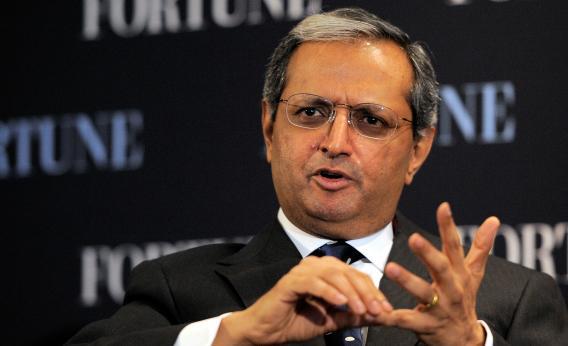Vikram Pandit succumbed to the most basic rule of thumb: three strikes and you’re out. A trio of Citigroup misfortunes, not all of the chief executive’s making - the bank’s dividend policy, his own compensation and the sale of Smith Barney - eroded the confidence of shareholders, regulators and the board. And they couldn’t have been much fun for Pandit to endure, especially after successfully navigating Citi to stability.
Though Pandit’s departure came suddenly, it’s easy to see why he and the board were ready to go their separate ways. In March, Pandit went to bat for shareholders by asking the Federal Reserve to let Citi pay a higher dividend or buy back more stock. But the Fed decided that would overly weaken the bank’s capital position.
The clash put the bank at loggerheads with its primary watchdog again. While the central bank’s math was indeed tough to comprehend, Pandit had already spent much of the year talking up Citi’s risk-management credentials and the prospect of higher shareholder payouts. In that sense, he failed to meet his own ambitious expectations.
That made it less surprising when the bank’s owners revolted against executive pay. Though it was a non-binding vote, 55 percent of Citi’s shareholders rejected a package that would have awarded Pandit $15 million and a retention package worth as much as $40 million for hitting relatively mundane targets. Though it’s really the job of the chairman and the compensation committee (which included now-chairman Mike O’Neill) to justify the rewards, the taint unfortunately stuck to Pandit, who was working without a contract.
The third strike seems more clearly self-inflicted. Pandit engaged in a bit of misguided game theory when valuing the Smith Barney brokerage he was selling to Morgan Stanley. It resulted in a $4.9 billion writedown that showed up in yesterday’s uninspiring third-quarter results.
None of the misses was deadly in the way of so many decisions by deposed bank bosses, including Barclays’ Bob Diamond, Bank of America’s Ken Lewis and Lehman Brothers’ Dick Fuld. They nevertheless cumulatively revealed a CEO who couldn’t always effectively communicate a set of expectations and meet them.
In the end, though, Pandit leaves behind a much stronger Citi than the one he took on at the advent of the financial crisis. The stock is up by a third in the past year, and barring another unforeseen hiccup - always a real possibility at Citi - the bank should be able to free up nearly $10 billion of capital for shareholders annually for the next few years.
Pandit’s replacement, Mike Corbat, is cut of Citi cloth and well positioned to oversee that process. He is unlikely to be the man to take Citi to its next logical transformation - a value-enhancing breakup. But he is the right man to pick up the pieces from Pandit and fulfill Citi’s financial promise.
Read more at Reuters Breakingviews.
